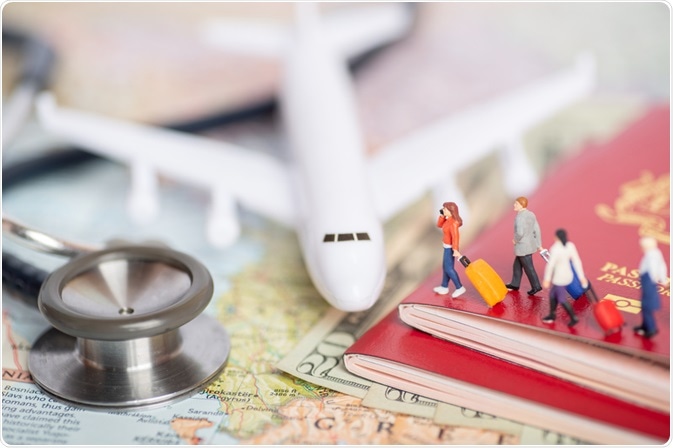The list of international destinations where patients travel to obtain a wide array of medical procedures is growing.

Image Credit: AHMAD FAIZAL YAHYA / Shutterstock.com
These destinations range from low to high risk, according to their possible complications or other negative outcomes. Therefore, it is vital to speak openly with the international physician about potential complications and how to minimize them prior to any medical procedure.
Diverse standards with regards to hospitals and physicians can be a problem, as each country usually has its own licensing and certification protocols. Increased familiarity with destination country protocols is necessary, and all potential risks should be taken into account before making a final decision to travel abroad.
Medical risks
Medical tourism increases the risk of nosocomial infections, which are also referred to as healthcare or hospital-acquired infections. For example, if needles are reused between patients or other unsafe injection practices are occurring, serious infections such as hepatitis and human immunodeficiency virus (HIV) can be transmitted.
Infections with multiresistant organisms, the spread of noroviruses, which are a common cause of acute gastroenteritis, and mycobacterial infections after cosmetic surgery are well-documented risks of medical tourism. Patients who cross borders in seek of medical care are also potentially exposed to infections that they would not normally encounter, thus posing a public health risk when they return home.
An apparent increase in this so-called “transplant tourism” in the last twenty years is also followed by a higher incidence of tissue rejection after the operation. Furthermore, there has also been a rise in the occurrence of critical infectious complications among transplant medical tourists as compared to other transplant patients. Since the blood supply in some countries comes predominately from paid donors and may not be adequately screened, there is also a risk to patients who might receive a blood transfusion during their procedure.
Traveling long distances after surgical procedures can also pose certain risks, such as deep vein thrombosis (DVT) and pulmonary embolism. The risk of these adverse events can be reduced by drinking plenty of water, exercising the legs while seated, and taking a walk every 2 to 3 hours on a long plane trip. Medical compression stockings and anti-clotting medications can also be prescribed for high-risk patients.
Medical tourism: Is the cost savings worth the risk?
Ethical and legal risks
Patient autonomy and informed consent both represent a cornerstone of bioethics, which can sometimes become a concerning issue for medical tourists. In the context of medical tourism, informed consent can be influenced by ambiguous or incomplete information on websites, problems in obtaining veracious information about success rates, and the quality of care in destination facilities.
Even under optimal circumstances, it is often difficult to obtain informed consent for medical procedures; the international dimension raises these concerns even more. Limited health literacy, coupled with the aforementioned limitations in access to accurate information, can result in the patients’ inability to make a thoroughly informed decision about medical tourism and eventually accept the risks of seeking healthcare in another country.
Countries may also have different standards of medical ethics. For example, a therapy that is considered experimental in one country, like stem cell therapy, can be commonly used in private healthcare institutions for medical tourists in other countries. Similarly, the medical ethics related to organ transplantation often differ from country to country.
If problems arise, patients might be left without the opportunity to seek damages in malpractice lawsuits due to the multiple jurisdictions involved and the lack of clarity in terms of which law should apply. Valid legal solutions to these issues are difficult to establish, thereby transferring pressure on patients’ healthcare systems at home to address them in a makeshift fashion.
References
Further Reading
Last Updated: Dec 21, 2022